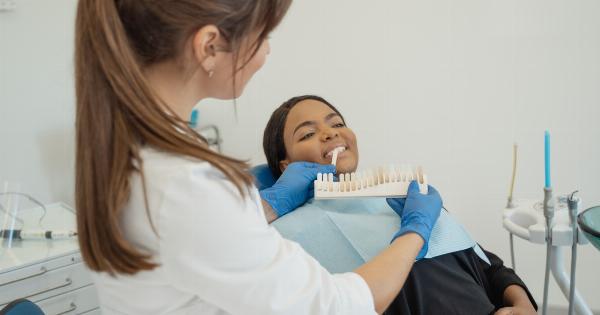Premenstrual syndrome (PMS) is a group of physical and emotional symptoms that occur before a woman’s menstrual cycle. Many women experience PMS at some point in their lives.
Symptoms may vary from person to person, and some women may experience severe symptoms that interfere with their daily lives.
While there are no cures for PMS, there are many ways to manage and alleviate symptoms. In this article, we will discuss some effective ways to manage premenstrual symptoms and improve your quality of life during this time.
1. Keep track of your symptoms
Keeping track of your PMS symptoms can help you identify patterns and better manage them. Use a calendar or a period-tracking app to keep track of your menstrual cycle and note any symptoms you experience.
This can help you anticipate when symptoms are likely to occur and prepare for them.
2. Exercise regularly
Regular exercise can improve mood and reduce stress, which can help alleviate PMS symptoms. Aim for at least 30 minutes of moderate exercise most days of the week. You can try jogging, cycling, swimming, or any other exercise that you enjoy.
3. Manage stress
Stress can worsen PMS symptoms, so it’s important to find ways to manage stress during this time. You can try yoga, meditation, deep breathing exercises, or any other relaxation technique that works for you.
Make time for activities that you enjoy and that help you relax, such as reading a book or taking a bath.
4. Get enough sleep
Getting enough sleep is important for overall health and can also help alleviate PMS symptoms. Aim for 7-8 hours of sleep per night. Establish a bedtime routine and stick to it, even on the weekends.
5. Eat a balanced diet
Eating a balanced diet can help alleviate PMS symptoms. Avoid foods that are high in salt, sugar, and caffeine, which can worsen symptoms. Instead, choose foods that are high in fiber, such as fruits, vegetables, and whole grains.
Eating small, frequent meals throughout the day can also help stabilize blood sugar levels and reduce mood swings.
6. Try over-the-counter remedies
Over-the-counter remedies, such as pain relievers and diuretics, can help alleviate specific PMS symptoms, such as cramps and bloating. Talk to your doctor about which remedies may be right for you.
7. Talk to your doctor about prescription medications
If your PMS symptoms are severe, your doctor may recommend prescription medications. Birth control pills, antidepressants, and hormone therapy may be options to consider. Talk to your doctor about the risks and benefits of these treatments.
8. Consider alternative therapies
Alternative therapies, such as acupuncture, massage therapy, and herbal supplements, may also help alleviate PMS symptoms. Talk to your doctor about which therapies may be right for you.
9. Avoid alcohol and tobacco
Alcohol and tobacco use can worsen PMS symptoms, so it’s best to avoid them during this time. Alcohol can worsen mood swings and make it difficult to sleep, while smoking can worsen headaches, cramps, and bloating.
10. Take care of yourself
Finally, it’s important to take care of yourself during this time. Make time for activities that you enjoy and that help you relax, such as spending time with friends or reading a book. Practice self-care, such as taking a long bath or getting a massage.
Remember that you don’t have to suffer through PMS symptoms – there are many ways to manage them and improve your quality of life during this time.






























